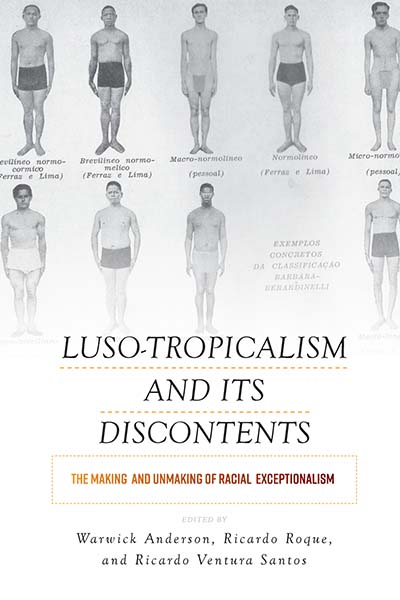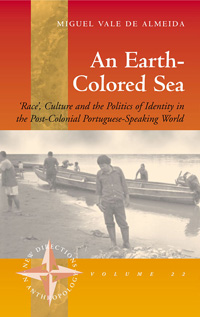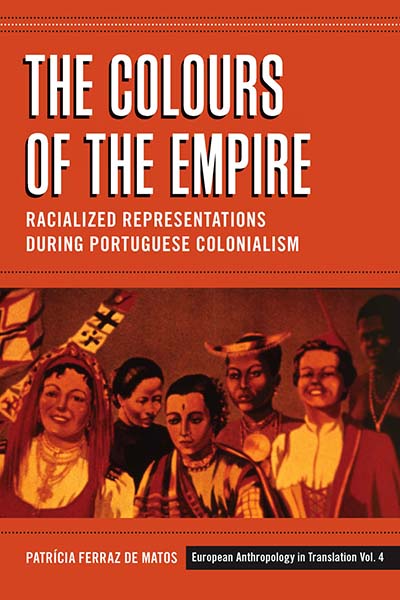Blackness, Science, and Circulation of Knowledge in the Eighteenth-Century Luso-Brazilian World and the United States
The Eighteenth Century
Volume 57, Number 3, Fall 2016
pages 303-324
DOI: 10.1353/ecy.2016.0020
Bruno Carvalho, Associate Professor of Spanish and Portuguese
Princeton University
It has become increasingly common for scholars to locate the eighteenth century as a turning point in what Nell Irvin Painter calls the “now familiar equation that converts race to black and black to slave.” Recent studies explore how scientific racism, which flourished in the nineteenth century, emerges in debates involving Enlightenment savants like Voltaire, David Hume, Immanuel Kant, and several less prominent authors. European anatomists, natural historians, and philosophers devised racial classification schemata, frequently relying on erroneous travel narratives as their main source of knowledge. The voices of “non-whites” are predictably muted in debates that took place almost exclusively among Europeans, but that also included well-connected North Americans, chief among them Thomas Jefferson (1743–1826). Although “race”—by no means a stable concept in the eighteenth century—included myriad categories besides “blackness,” this article will discuss how intellectuals in the Americas wrote about black Africans and their descendants in the context of Enlightenment-era science.
Given how the Portuguese and British Americas received the majority of Africans taken to the New World as slaves, it is not surprising that there is a longstanding tradition of comparative approaches to racial relations in Brazil and the United States. Sparse attention, however, has been paid to how the transatlantic circulation of eighteenth-century scientific discourses, especially in natural history, might have impacted the later development of different forms of racism across the hemisphere. This study brings to the fore texts from the Luso-Brazilian world that have been largely overlooked, and aims to add to the vast literature on Jefferson’s Notes on the State of Virginia (1781). Although the analysis here does not pretend to be comprehensive or exhaustive, by investigating connections between a group of would-be revolutionaries in the Brazilian captaincy of Minas Gerais and the United States independence movement, it attempts to be connective as much as comparative. This hemispheric approach evinces the disparate roles and station of Luso-Brazilian and United States lettered elites in transatlantic circulation of knowledge, while seeking to contribute to an understanding of how they produced divergent texts about blackness in the period preceding the French and Haitian revolutions.
The Luso-Brazilian eighteenth century has generated an outstanding body of scholarship, but it does not often appear prominently in panoramic studies of the period—despite the fact that the Portuguese empire remained one of Europe’s most extensive, and that gold from its Minas Gerais possessions had a significant impact on the global economy. Perhaps it is so because Brazil does not easily fit within the Age of Revolutions paradigm: in 1822, it was the Portuguese monarch’s son, rather than a republican revolutionary, who declared independence. Brazil was an empire through most of the nineteenth century, and became a republic in 1889, later than its Spanish-speaking neighbors. Eighteenth-century movements that might have become comparable to the United States and Haitian Revolutions were thwarted by the Crown. Likewise, although by some estimates mining in the Portuguese Americas alone propelled about ten percent of all slave trade in the eighteenth century, the Luso-Brazilian world remains largely absent from scholarship on the connections between slavery and the “Sciences of Man” during the Enlightenment: one aspect of what Charles Withers calls “geographies of human difference.”
While the historiography on slavery and race relations in the Portuguese empire has for some time been vibrant, studies on Luso-Brazilian scientific representations of race in the eighteenth century are still lacking. This might be attributed to the perception that scientific racism was a phenomenon of the nineteenth century, or that Portugal remained mired in religious obscurantism, its writers therefore not attuned to Enlightenment-era debates. Through a transatlantic lens, Brazil’s place in eighteenth-century geographies of knowledge is usually further diminished by how, unlike the British and Spanish Americas, it had neither universities nor a printing press. Nonetheless, as we well know, central books and ideas of the Enlightenment circulated among lettered elites.
In Brazil and Portugal…





